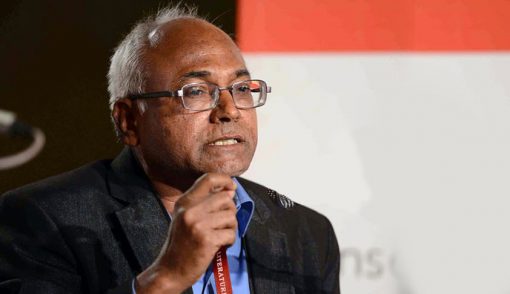
Delhi University has proposed removing three books by political scientist Kancha Ilaiah from its curriculum citing their “controversial content” and “vitriolic nature towards Hinduism”. The three books –Why I Am Not a Hindu: A Sudra critique of Hindutva philosophy, culture and political economy, Post-Hindu India: A Discourse in Dalit-Bahujan Socio-Spiritual and Scientific Revolution and God as Political Philosopher: Buddha’s Challenge to Brahmanism – are currently taught in the post-graduate Political Science programme in the university.
The proposal has been made by the Standing Committee on Academic Matters and is pending approval from the Academic Council of the university. The move is being backed by a section of teachers who demand that either the texts be removed or a “counter narrative” be placed before the students. Professor Veena Kukreja, Head of the Department of Political Science, says, “We are a democratic body, and the teachers and experts concerned will sit, decide and justify why we teach Ilaiah. It will be pursued democratically.”
All three books deal with the long-standing and persistent conflict between Brahmanism and alternative emancipatory worldviews. In these texts, Ilaiah offers a scathing indictment of orthodox Hinduism and its debilitating impact on Indian society.
Talking to PTI, Ilaiah termed the move “unfortunate”. He said, “Under the BJP government, academic autonomy is getting destroyed. They do not want plural ideas in academic discourse.” He further pointed out that last year the Supreme Court had refused to ban his book Samajika Smuggluru Komatollu (Vysyas are Social Smugglers) and had observed that every author has a fundamental right to voice ideas freely.
Along with the proposal to ban the three books, the Standing Committee has also recommended to not use the word “Dalit”, preferring the term “Scheduled Caste”. This is in keeping with the current trend of banning the word across several institutions. A month ago, the Ministry for Information and Broadcasting had issued a directive discouraging the use of the word in the media. This was done on the direction of the Bombay high court. The reasoning of the Bombay high court was that the word “Dalit” doesn’t find mention in the Constitution of India. The move came in for much criticism from Dalit activists, who see the word and its use as crucial to the cause of social justice.
The Committee has also proposed removing a research paper by Christophe Jafferlot titled The Militants of Hindutva: Communal Violence, Terrorism and Cultural Policing. The stated reason behind the proposal is that inclusion of such Western academics results in “Indian voices” being ignored. The paper is currently included in the curriculum of the English department at Delhi University. Jafferlot has for long been a staunch critic of the politics of Hindutva.
It must be noted that these moves come in the midst of attempts by the union government to extend the Central Civil Services Conduct Rules to faculty members in Central Universities, a move which is being massively protested as a tyrannical incursion into academic freedom.
Over the last few years, assaults on academic freedoms, particularly in institutions of higher learning, have been on the rise. In March 2017, Maharaja Sayajirao University (MSU), Baroda, cancelled a workshop on the politics of caste and social movements in the country. The reason cited was fear of backlash from “certain groups” (Read: Akhil Bharatiya Vidyarthi Parishad) in light of the violence that followed the disruption of Umar Khalid’s speech at Ramjas College, Delhi University.
These attacks have particularly targeted voices that criticise the socio-political status quo. The worst brunt of this onslaught has been borne by rationalists, free thinkers and social critics who raise their voices against oppression and injustice. Talking to Newsclick, Kancha Ilaiah said, “If I talk about caste and inequalities, it is not blaming a religion. My book Post-Hindu India which is being called anti-Hindu is based on ten years of research in villages and tribal areas, where I write about every community’s work ethics, productivity, food culture and interpersonal relationships. I make a point about how, due to the labour intensive nature of their work, the Dalit-Adivasi-Bahujan communities need a protein rich i.e., meat-based diet and, therefore, if the idea of Hinduism is vegetarianism, then these people are outside the framework of Hinduism. RSS and BJP believe in vegetarian nationalism.”
According to Iliah, the restriction of academic freedom does not bode well for the future of Indian society. Education and academic integrity have a key role to play in addressing the problems confronting our country. He says, “I think BJP, RSS and the Human Resource Development (HRD) Ministry under their control is pushing the university into ‘un-creative’, non-serious, and one dimensional teaching culture. That is not good for the nation or the people.”
Read more:
Kancha Ilaiah Complains to Police After Posters Appear Threatening to Kill Him
The Supreme Court of India Refuses to Ban Kancha Ilaiah Shepherd’s Book
Supreme Court Judgement on Kancha Ilaiah




